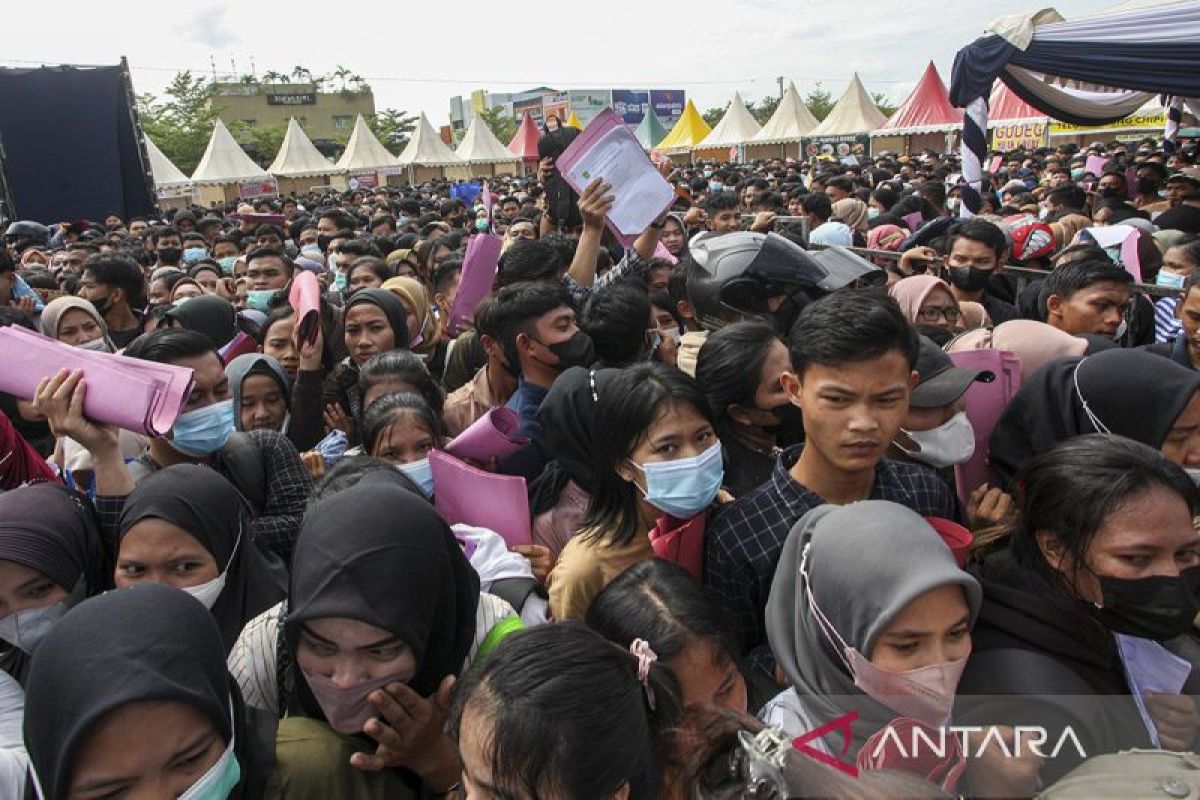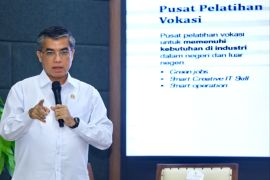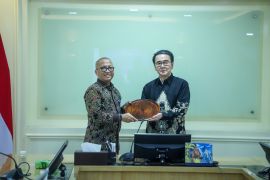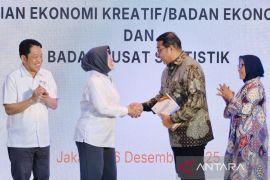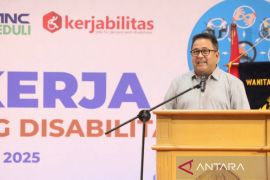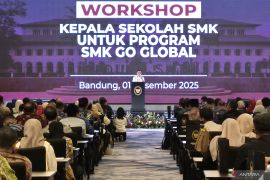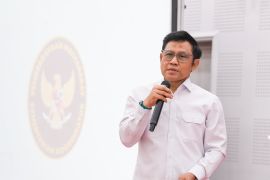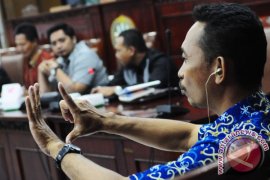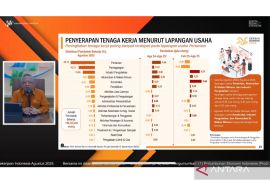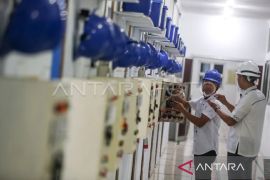Several programs have been implemented by the Ministry of Manpower to protect the employment sector, one of which is reducing the unemployment rate by providing training to the community and encouraging people to become entrepreneurs in order to create jobs, which ultimately helps reduce the unemployment rate in the country.
Based on data from Statistics Indonesia (BPS), the open unemployment and underemployment rates show a decline, in line with the increase in the rate of people who are employed.
In August 2023, it was recorded that 139.85 million people, or 94.68 percent of Indonesia's 147.71 million workforce, had been absorbed.
Of the 139.85 million people, 96.39 million work full-time, 34.12 million work part-time, and 9.34 million people are underemployed or work less than 35 hours a week.
The number of unemployed people in August 2023 reached 7.86 million, declining by 0.56 million, or 6.77 percent, as compared to August 2022, which stood at 8.42 million people.
In Indonesia, the open unemployment rate stood at 5.32 percent in August 2023, a decline of 0.54 percentage points as compared to August 2022, which reached 5.86 percent.
According to the type of work, most members of the working population in Indonesia work in the informal sector, at 59.11 percent, while the other 40.89 percent work in the formal sector.
Indonesia should be grateful, as its employment sector is still able to recover after the pandemic and amid global geopolitical uncertainty.
In order to maintain positive performance of the employment sector, the government needs to pay attention to several future challenges, one of which is that the working population in Indonesia is still dominated by people with low educational attainment.
The number of people of the working population who are graduates of junior high school and lower reached 86.33 million, or constituted 54.58 percent of the working population in Indonesia.
Meanwhile, workers who graduated high school reached 28.32 million as of August 2023, contributing 20.25 percent. As many as 17.33 million workers, or 12.39 percent, are graduates of vocational schools.
In the meantime, there are 3.41 million workers, or 2.44 percent, with associate degrees. The number of workers, who are university graduates, was recorded at 14.43 million people, or 10.32 percent of the total working population nationally.
Lower educational attainment can affect competitiveness in local and global job markets. Some also believe that low educational attainment can also affect productivity.
Nevertheless, training programs of the Ministry of Manpower have been designed to improve the skills of the workforce to boost productivity.
The government offers several strategies to overcome various employment problems, especially increasing the workforce's productivity.
First, the Ministry of Manpower is encouraged to ensure the strengthening of collaboration between stakeholders, from the training process to workforce absorption, including ensuring productivity of the workforce.
Second, the government highlighted the importance of employers guaranteeing the rights of workers as well as supporting efforts to achieve development priorities.
Third, business players are urged to encourage the development of employees' competencies and careers as well as optimize technology. This includes prioritizing the principle of inclusivity, including providing fair work space and opportunities for women and people with disabilities, as well as prioritizing recruitment of local workers.
Fourth, regional governments are urged to create a plan and budget for the employment sector and ensure the business process runs in accordance with the employment policies.
The plan includes efforts to improve the quality of education as well as develop the skills of the workforce through training, among others, through the Vocational Training Center (BLK).
BLK transformation and entrepreneurship training
To create a productive, competitive, and prosperous workforce, the Manpower Ministry has transformed the BLK into the Vocational and Productivity Training Center (BPVP).
Manpower Minister Ida Fauziyah stated that the transformation is conducted to train human resources that are competent, have national- and international-level competitiveness, and meet employment needs.
Apart from that, the Manpower Ministry also formed community-based BLK in Islamic boarding schools (pesantren) to boost competency and competitiveness, considering that pesantren graduates are still often compared to general school graduates.
After the creation of competent human resources, the next focus of the government is building job market services and expanding job opportunities.
The ministry is also encouraging people to be economically independent by providing entrepreneurship training, so they can create jobs for themselves and others.
The entrepreneurship training programs organized by the Ministry of Manpower are also open to micro, small, and medium enterprises (MSMEs). This policy is designed to contribute to reducing unemployment.
The ministry has been providing productivity improvement training, including for workers of MSMEs, at the BPVP since 2022.
The training is inclusive in nature to provide assistance to MSMEs that need intervention in the efforts to master, improve, and transfer competencies, so that they can adapt to the needs of the job market.
Thus, it is hoped that they can contribute to reducing the country's unemployment rate.
For workers affected by layoffs and not having the skills and capital but are still keen to run a business, the Ministry of Manpower also has the Beginner Independent Worker (TKM) program that facilitates the entrepreneurial interests and talents of the workforce.
The ministry also has a follow-up program for Beginner TKM, namely the Advanced TKM program, to improve the capacity of businesses that have been built in the Beginner TKM.
In the Advanced TKM program, business players can partake in business matching, so that MSMEs can offer innovative products and services to investors, buyers, accelerators, and other potential partners, as well as build partnership networks to increase business capacity and workforce absorption.
The presence of training programs that are tailored to the needs of the job market and encourage entrepreneurship is expected to facilitate a reduction in the unemployment rate and improvement in the national economic growth.
Related news: Govt working with foreign partners to improve vocational education
Related news: Industry Ministry strives to bolster vocational education, training
Related news: Indonesia to strengthen employment sector cooperation with Austria
Translator: Zubi Mahrofi, Raka Adji
Editor: Azis Kurmala
Copyright © ANTARA 2023
